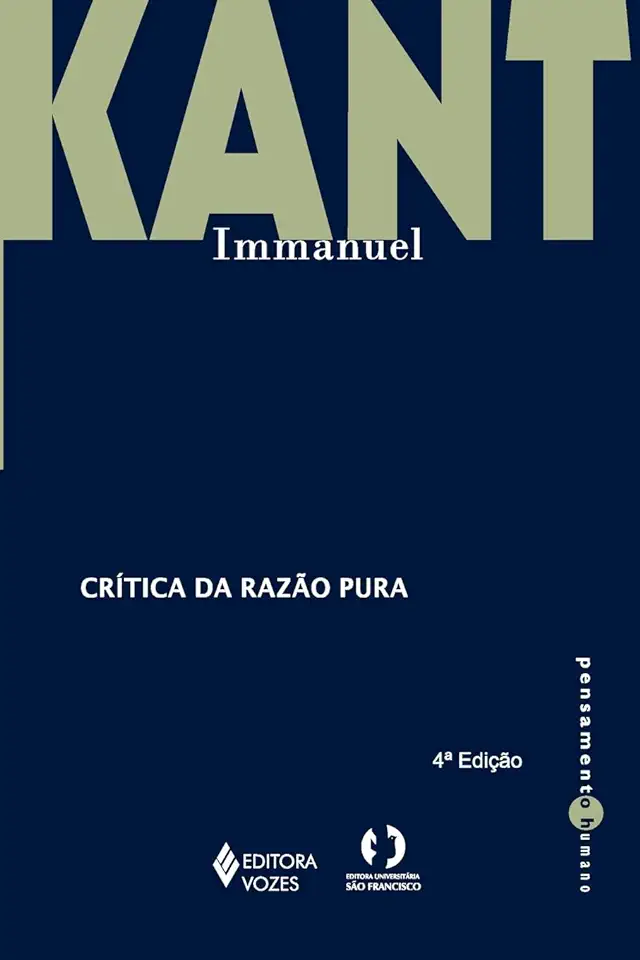
Critique of Pure Reason - Immanuel Kant
Critique of Pure Reason: A Journey into the Depths of Human Knowledge
Immanuel Kant's Critique of Pure Reason is a seminal work in the field of philosophy, offering a profound exploration of the nature of human knowledge and the limits of our understanding. This comprehensive and influential treatise delves into the fundamental principles that govern our cognitive faculties, challenging long-held assumptions and revolutionizing our understanding of the world around us.
Unveiling the Architecture of Human Reason
Kant begins his philosophical inquiry by examining the very foundations of human knowledge, meticulously dissecting the processes by which we perceive, comprehend, and reason about the world. He argues that our knowledge is not simply a passive reception of sensory information but rather an active construction of our minds. Kant identifies two essential elements that shape our experience: the a priori and the a posteriori.
The a priori elements are those innate concepts and principles that exist independently of our experience. These include the fundamental categories of thought, such as space, time, and causality, which structure our perception and understanding of the world. Kant argues that these a priori elements are necessary conditions for any possible experience and are not derived from our interactions with the external world.
On the other hand, the a posteriori elements are those concepts and principles that are acquired through our experience. These include our empirical knowledge of the world, such as the laws of nature and the properties of objects. Kant emphasizes that our a posteriori knowledge is always limited and contingent, as it is dependent on our sensory perceptions and the specific conditions of our experience.
The Boundaries of Human Understanding
Kant's exploration of the nature of human knowledge leads him to confront the fundamental question: What are the limits of our understanding? He argues that our knowledge is inherently finite and that there are certain aspects of reality that are beyond our grasp. This is because our cognitive faculties are structured in such a way that they can only process and comprehend phenomena within the realm of our experience.
Kant identifies two types of limits to our understanding: the transcendental and the empirical. The transcendental limits are those that are imposed by the very nature of our cognitive faculties, such as the inability to perceive things-in-themselves or to fully comprehend the infinite. The empirical limits, on the other hand, are those that arise from the specific conditions of our experience, such as the limitations of our senses or the complexity of the natural world.
The Significance of Critique of Pure Reason
Kant's Critique of Pure Reason has had a profound impact on the development of philosophy, epistemology, and the study of human cognition. It has challenged traditional notions of knowledge and reality, prompting philosophers to reevaluate the foundations of their beliefs and to explore new avenues of inquiry.
The book's significance lies in its rigorous analysis of the nature of human knowledge, its identification of the limits of our understanding, and its profound insights into the relationship between our minds and the world we experience. It is a must-read for anyone seeking a deeper understanding of the complexities of human thought and the boundaries of human knowledge.
Why You Should Read Critique of Pure Reason
If you are fascinated by the workings of the human mind, the nature of reality, and the limits of our understanding, then Critique of Pure Reason is an essential addition to your library. Kant's profound exploration of these fundamental philosophical questions will challenge your assumptions, expand your horizons, and leave you with a deeper appreciation for the complexities of human existence.
This seminal work is not for the faint of heart, but for those willing to embark on an intellectual journey, it offers a transformative experience that will reshape your understanding of the world and your place within it. Immerse yourself in the depths of Kant's philosophical inquiry and discover the profound insights that have captivated readers for generations.